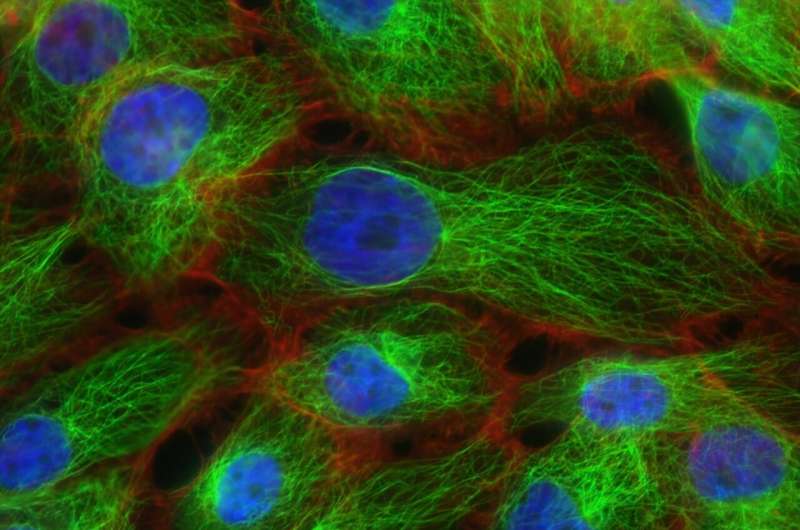Women with breast cancer in 'fighting shape' have less brain fogginess

A new study shows that women newly diagnosed with breast cancer, who were exercising moderately or vigorously before chemotherapy (getting the recommended 150 minutes per week) were less likely to suffer from "chemo brain" during and after treatment.
Chemo-brain, or brain fogginess, is a well-known side effect for some cancer survivors treated with chemotherapy. In prior studies, women with breast cancer have said that brain fog is a significant problem. The new research suggests that exercise may be a prevention tool, and lays the groundwork for clinical trials to further investigate the power of exercise in cancer care.
"We've always believed that exercise is a great way to help cancer patients," said Michelle Janelsins, Ph.D. M.P.H., senior author of the study, which was published in the Journal of Clinical Oncology.
"But now we have evidence that meeting physical activity guidelines prior to getting chemotherapy has benefits," Janelsins said. "It puts you in fighting shape and appears to offer some protection against things such as memory difficulties or the inability to pay attention, which are common concerns for those undergoing chemotherapy."
Janelsins is an associate professor of Surgery at the University of Rochester Medical Cancer and member of the Cancer Prevention and Control research program at the Wilmot Cancer Institute at URMC. The study's corresponding author and first author is Elizabeth Salerno, Ph.D. M.P.H., an assistant professor of Surgery in the Division of Health Sciences at Washington University in St. Louis, and a colleague and former mentee of Janelsins.
Researchers analyzed nationwide data from a prior Janelsins study involving 580 breast cancer patients and 363 healthy people in a control group. They observed patterns associated with the patients' self-reported levels of exercise before, during, and after cancer treatment while assessing cognitive function at those same three time periods.
About 33 percent of the breast cancer patients met physical activity guidelines set by the U.S. Department of Health and Human Services at the start of the study. Those same women performed as well as their healthy counterparts on objective memory and cognition tests during treatment.
"Our findings contribute to the growing body of evidence highlighting the importance of physical activity as early as possible across the continuum of cancer care," Salerno said.
Researchers emphasized that this particular study is observational, and therefore cannot definitively say that exercise protects against chemo-brain. However, a study co-author, Karen Mustian, Ph.D., co-leader of Wilmot's Cancer Prevention and Control program, is an expert in exercise to alleviate side effects of cancer and its treatment and has established physical activity (with medical supervision) as a viable option for many cancer patients.
Janelsins is among the top investigators in the U.S. to link brain fogginess and chemotherapy. In 2016, she published results from the same cohort of patients—which was the largest at the time—validating a person's own perceived impairment and cognitive impairment perceived by others. Her research relies on a specialized tool called FACT-Cog, which allows investigators to correlate symptoms with factors such as age, education, race, and menopausal status, for example. In 2018, another Janelsins study from that group of women with breast cancer, published in the Journal of Clinical Oncology, showed that for as long as six months after treatment the cancer patients performed more poorly on cognitive tests than healthy people.
More recently, she conducted a phase 2 clinical trial of 86 patients and showed that exercise can improve a person's ability to concentrate as they undergo treatment.
More information: Elizabeth A. Salerno et al, Physical Activity Patterns and Relationships With Cognitive Function in Patients With Breast Cancer Before, During, and After Chemotherapy in a Prospective, Nationwide Study, Journal of Clinical Oncology (2021). DOI: 10.1200/JCO.20.03514
Michelle C. Janelsins et al, Longitudinal Trajectory and Characterization of Cancer-Related Cognitive Impairment in a Nationwide Cohort Study, Journal of Clinical Oncology (2018). DOI: 10.1200/jco.2018.78.6624





















